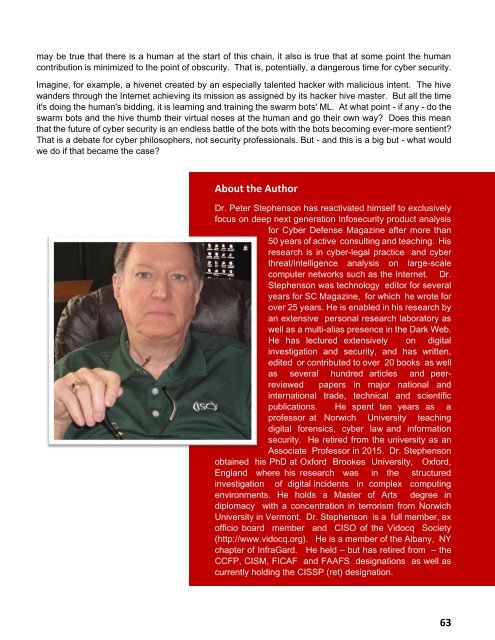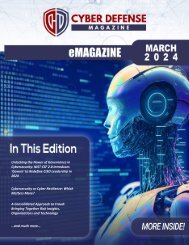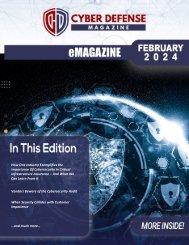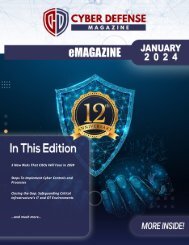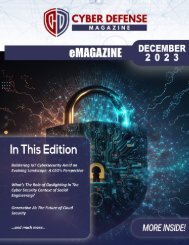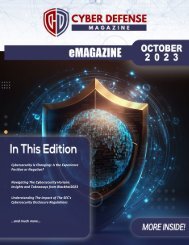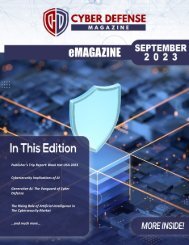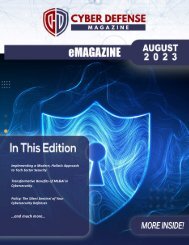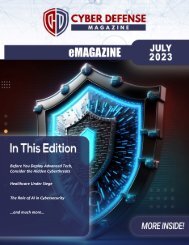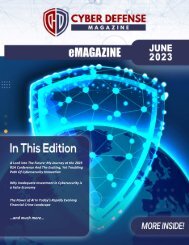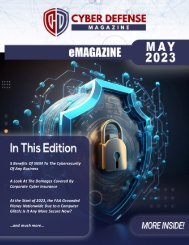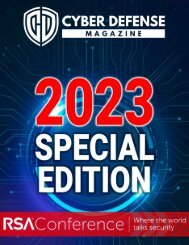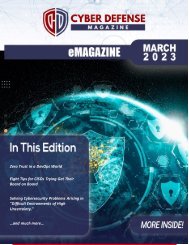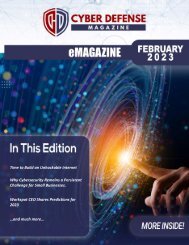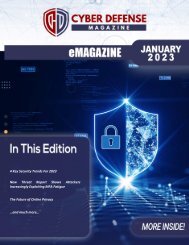The Black Unicorn Report for 2021
In this Black Unicorn Report for 2021, we’ve taken a few unique cybersecurity lenses to view the market and predict the future. Note that post COVID-19, the world has turned upside down and it’s accelerated telecommuting and cloud-based apps (SaaS) expansion, moving us from 3-4% home workforce to over 51% and growing. Thus, the major attack vectors have shifted to the cloud and weaker home-computing hygiene. This has opened doors for increased revenues and visibility among those players who secure the cloud, SaaS apps and deal with weak, remote, exposed endpoints. Learn about the winners and finalists in seven key categories and get one step ahead of the next threat with their help.
In this Black Unicorn Report for 2021, we’ve taken a few unique cybersecurity lenses to view the market and predict the future. Note that post COVID-19, the world has turned upside down and it’s accelerated telecommuting and cloud-based apps (SaaS) expansion, moving us from 3-4% home workforce to over 51% and growing. Thus, the major attack vectors have shifted to the cloud and weaker home-computing hygiene. This has opened doors for increased revenues and visibility among those players who secure the cloud, SaaS apps and deal with weak, remote, exposed endpoints. Learn about the winners and finalists in seven key categories and get one step ahead of the next threat with their help.
You also want an ePaper? Increase the reach of your titles
YUMPU automatically turns print PDFs into web optimized ePapers that Google loves.
may be true that there is a human at the start of this chain, it also is true that at some point the human<br />
contribution is minimized to the point of obscurity. That is, potentially, a dangerous time <strong>for</strong> cyber security.<br />
Imagine, <strong>for</strong> example, a hivenet created by an especially talented hacker with malicious intent. <strong>The</strong> hive<br />
wanders through the Internet achieving its mission as assigned by its hacker hive master. But all the time<br />
it's doing the human's bidding, it is learning and training the swarm bots' ML. At what point - if any - do the<br />
swarm bots and the hive thumb their virtual noses at the human and go their own way? Does this mean<br />
that the future of cyber security is an endless battle of the bots with the bots becoming ever-more sentient?<br />
That is a debate <strong>for</strong> cyber philosophers, not security professionals. But - and this is a big but - what would<br />
we do if that became the case?<br />
About the Author<br />
Dr. Peter Stephenson has reactivated himself to exclusively<br />
focus on deep next generation Infosecurity product analysis<br />
<strong>for</strong> Cyber Defense Magazine after more than<br />
50 years of active consulting and teaching. His<br />
research is in cyber-legal practice and cyber<br />
threat/intelligence analysis on large-scale<br />
computer networks such as the Internet. Dr.<br />
Stephenson was technology editor <strong>for</strong> several<br />
years <strong>for</strong> SC Magazine, <strong>for</strong> which he wrote <strong>for</strong><br />
over 25 years. He is enabled in his research by<br />
an extensive personal research laboratory as<br />
well as a multi-alias presence in the Dark Web.<br />
He has lectured extensively on digital<br />
investigation and security, and has written,<br />
edited or contributed to over 20 books as well<br />
as several hundred articles and peerreviewed<br />
papers in major national and<br />
international trade, technical and scientific<br />
publications. He spent ten years as a<br />
professor at Norwich University teaching<br />
digital <strong>for</strong>ensics, cyber law and in<strong>for</strong>mation<br />
security. He retired from the university as an<br />
Associate Professor in 2015. Dr. Stephenson<br />
obtained his PhD at Ox<strong>for</strong>d Brookes University, Ox<strong>for</strong>d,<br />
England where his research was in the structured<br />
investigation of digital incidents in complex computing<br />
environments. He holds a Master of Arts degree in<br />
diplomacy with a concentration in terrorism from Norwich<br />
University in Vermont. Dr. Stephenson is a full member, ex<br />
officio board member and CISO of the Vidocq Society<br />
(http://www.vidocq.org). He is a member of the Albany, NY<br />
chapter of InfraGard. He held – but has retired from – the<br />
CCFP, CISM, FICAF and FAAFS designations as well as<br />
currently holding the CISSP (ret) designation.<br />
63


